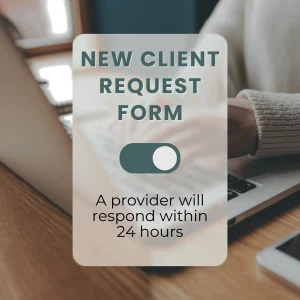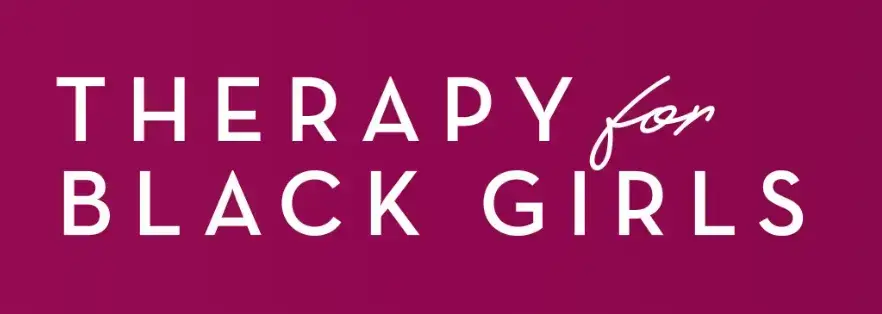
Empowerment Counseling: How to Revive Your Inner Strength
Empowerment counseling is rooted in the belief that individuals possess the inner strength and capacity to change their lives. It’s an approach centered on helping people discover and harness their personal power to overcome challenges, make decisions, and achieve their goals. This form of counseling is designed to shift the focus from what is wrong with a person to what is strong within them, emphasizing self-determination, self-efficacy, and the ability to control one’s life outcomes.
The Role of Empowerment in Mental Health
Empowerment plays a crucial role in mental health, offering individuals the tools and confidence needed to navigate life’s ups and downs. By identifying personal strengths and weaknesses, individuals can craft a path towards self-empowerment that is both authentic and sustainable.
Empowerment counseling incorporates a range of techniques and skills designed to foster self-awareness, resilience, and personal agency. These methods empower individuals to identify their strengths, set realistic goals, and navigate life’s challenges with confidence. Below are key techniques used in empowerment counseling, along with examples of how they might be applied:
Focus of Empowerment Counseling
- Strengths-Based Approach:
This technique focuses on identifying and building upon an individual’s inherent strengths rather than concentrating solely on weaknesses or problems. For example, if a client is particularly compassionate, this trait can be leveraged to foster self-kindness and empathy towards others, enhancing personal relationships and self-esteem. - Goal Setting and Action Planning:
Empowerment counseling involves working with clients to set realistic, achievable goals and develop a step-by-step action plan to reach these objectives. For instance, a client aiming to improve their physical health might set a goal to engage in 30 minutes of exercise three times a week, with the counselor helping them to schedule these activities and find enjoyable forms of exercise. - Assertiveness Training:
This skill helps individuals express their needs and boundaries clearly and respectfully, without aggression or passivity. Through role-playing exercises, clients can practice assertive communication, such as saying no to excessive work demands or requesting help from a partner. - Problem-Solving Skills:
Empowerment counseling teaches clients effective problem-solving strategies, helping them to approach challenges in a structured and proactive manner. Techniques might include breaking down a problem into smaller, manageable parts, brainstorming potential solutions, and evaluating the pros and cons of each option. - Self-Reflection and Mindfulness:
These practices encourage clients to become more aware of their thoughts, feelings, and behaviors in the present moment, without judgment. Activities might include guided meditation, journaling, or mindfulness exercises, which can help reduce stress and increase emotional regulation. - Cognitive Restructuring:
This technique involves identifying and challenging negative, self-limiting beliefs, and replacing them with more positive and empowering thoughts. For example, transforming the belief “I can’t handle any stress” to “I can manage stress effectively with the right strategies.” - Narrative Therapy:
In narrative therapy, clients are encouraged to tell their stories and rewrite them in a way that highlights their strengths and achievements. This can help change their perspective on past events and foster a sense of agency over their life narrative. - Resource Identification:
In empowerment therapy, counselors help clients identify internal and external resources that can support their empowerment journey, such as personal skills, social support networks, and community resources. For example, connecting a client with local career counseling services or support groups.
Skills Gained from Empowerment Counseling
- Empathy Development:
Developing empathy towards oneself and others is a crucial aspect of empowerment counseling. It involves understanding and sharing the feelings of another person, which can enhance communication and interpersonal relationships. Exercises may include reflecting on times when the client felt understood to foster a deeper connection with their own emotions and those of people around them. - Resilience Building:
Empowerment counseling aims to build resilience, enabling clients to bounce back from setbacks with greater strength. Techniques include identifying past instances of overcoming adversity, learning from these experiences, and applying these lessons to current challenges. Activities might involve creating a “resilience timeline” that highlights these moments and the strengths used to navigate them. - Creative Expression:
Encouraging clients to express themselves creatively can be a powerful tool for exploration and expression. This might involve art therapy, writing, music, or dance, allowing individuals to explore their emotions, experiences, and aspirations in a non-verbal way, fostering a sense of freedom and personal insight. - Social Skills Development:
Enhancing social skills is key to empowerment, particularly for individuals who may feel isolated or struggle with social interactions. Techniques can include role-playing social scenarios, practicing active listening and empathy in conversations, and strategies for initiating and maintaining friendships and professional relationships. - Mindset Shifting:
Fostering a growth mindset is another cornerstone of empowerment counseling. This involves shifting from a fixed mindset (“I am not good at this”) to a growth mindset (“I can improve with effort and strategy”). Counselors might use examples of successful people who overcame failures, encouraging clients to see challenges as opportunities for growth. - Boundary Setting:
Teaching clients how to set healthy boundaries is vital for empowerment. This includes recognizing one’s limits and communicating them effectively to others. Techniques might involve exploring areas where boundaries are needed, practicing saying “no” in a supportive environment, and discussing ways to maintain these boundaries in various aspects of life. - Gratitude and Positivity:
Cultivating gratitude and focusing on positive aspects of life can shift perspectives and enhance well-being. Techniques include keeping a gratitude journal, practicing daily affirmations, and engaging in acts of kindness, which can shift focus from what’s lacking to what’s abundant in one’s life. - Experiential Learning:
Finally, empowerment counseling often involves experiential learning, where clients are encouraged to try new activities or take on challenges that can help them apply and reinforce the skills learned in therapy. This could be as simple as joining a new club, volunteering, or setting a personal challenge that aligns with their goals.
Empowerment Counseling in a Nutshell
In conclusion, empowerment counseling is a powerful tool for personal development, offering a path to self-discovery, resilience, and fulfillment. By focusing on the strengths and potential of each individual, empowerment counseling empowers people to take control of their lives and achieve their personal and professional goals. Whether through overcoming obstacles, building self-esteem, or fostering a deeper understanding of oneself, empowerment counseling provides a supportive and transformative environment for growth.
FAQ's About Therapy in New Jersey
How do I get started as a new client?
New Clients can reach out to us directly via call, text or email here:
Or, you can complete a new client form and we’ll reach out to you within 24 hours here:
What are your specialties?
Our therapists have dedicated their clinical work to specific niche areas. Check out our therapy service page here to learn about our areas of expertise
What type of therapy do you offer?
We offer traditional and non-traditional therapy
Traditional therapy, such as talk therapy incudes:
- Individual therapy
- Couples Counseling
- Family Therapy
- Cognitive Behavioral Therapy
- Emotion-Focused Therapy
Do you offer Ketamine Therapy?
Yes! Ketamine has shown promise in treating various mental health conditions, including PTSD, Anxiety, Depression, Phobias and OCD. As Ketamine therapy providers, we offer this service to help clients break cycles of thinking traps that lead to compulsive behaviors.
Is Online Therapy As Effective As In-Person Therapy?
Online therapy is essentially face-to-face counseling, just conducted remotely. Studies show that teletherapy is as effective as traditional counseling. Professional organizations and state governments recognize its benefits and have set regulations for it. However, like any therapy, its success in achieving your goals isn’t guaranteed. It’s important to discuss with your therapist whether teletherapy is working for you.
What age groups do you serve?
Currently, we work with New Jersey clients ages 10+
Do you offer traditional talk therapy?
of course! though we have some unconventional therapy approaches, we are rooted in evidenced based practices. Talk therapy is a major player in the therapy room! See What we Treat and Integrative Services for more information
What Geographic Areas Are Served?
Currently, we serve clients in New Jersey and are expanding to other states as telehealth laws evolve. While telehealth offers the convenience of attending sessions from anywhere, state laws require clients to be in-state during their session.
Does my insurance cover my visits?
We provide”Courtesy Billing” for clients who are using the Out-of-network insurance benefits.
Our Insurance Page shares a small blurb about Why We Left Insurance Panels
Can I Change Therapists If I'm Not Happy?
Yes, you can switch therapists to another provider within the practice, or we can provide you a referral if preferred. We want to ensure that your time and effort are well spent, and that you are getting the relief you need, that’s why we work collaboratively with each other in the practice, as well as outside therapists who we know and trust.
What is your cancellation policy?
We ask that clients provide at least 24 hours notice in the event that they need to cancel to avoid the 50% cancellation fee. we understand that life happens and do our best to be flexible & reschedule.
How Do I Know If Therapy Is Helping?
You should feel like you’re making progress. Signs it’s working include:
Feeling comfortable talking to your therapist
Your therapist respects boundaries
You’re moving towards your goals
You feel listened to
You’re doing better in life
Your self-esteem is getting better
Is Online Therapy Easy to Use for Non-Tech-Savvy People?
Yes, it’s pretty simple to access sessions. You’ll need basic internet skills, such as opening and visiting the patient link sent to you via email. It’s similar to video chatting like Facetime or Zoom. We can also walk you through it on the phone the first time to ensure a strong connection
What Questions Should I Ask My New Therapist?
Feel free to ask anything. Some good questions are:
- How often will we meet?
- What do you specialize in?
- What experience do you have with my issue?
- What outcomes can I expect?
- How will I know I’m progressing?
- How long do you usually work with clients?
- How will we set my treatment goals?
How Should I Prepare for My First Session?
Showing up is all that you need to do! But if you really want to get the most out of session, it could help to take some time to think about what you want from therapy. It helps to write down your goals, questions you have or things that you feel are important to share.
What is the difference between associate therapists & fully licensed therapists?
Our Qualifications:
Our founder, Rebecca Sidoti, is a highly qualified, state-licensed therapist and supervisor with extensive training in anxiety related disorders and innovative treatment such as Ketamine Therapy. Mind by Design Counseling adheres to standards set by the our governing counseling boards.
To see each providers credentials, training and licenses, visit our “Meet the Therapists” Page to learn more.
- LAC/LSW are therapists who may practice clinical work under the supervision of a fully licensed therapist.
- LPC/LCSW are therapists who have completed the necessary clinical hours post-graduation under supervision and can practice clinical work independently.
Is Virtual Counseling Suitable for Everyone?
Online therapy might not be as effective for individuals with chronic suicidal thoughts, severe trauma, significant mental health history, or those recently in intensive care. Such cases often benefit more from traditional, in-person counseling. We’ll help you decide if our online services are right for you during your intake and evaluation.
What Equipment is Needed for Online Therapy?
To join a session, log in using the credentials we provide. No downloads are needed. Our platform, compatible with both individual and group sessions, requires:
A computer or mobile device with a webcam and internet access.
We’ll help you test your setup before your first appointment to ensure a reliable connection. iOS users should use the Safari browser for mobile and tablet sessions.
What Questions Will Therapists Ask Me?
It depends on your goals. Expect questions about your thoughts, feelings, relationships, work, school, and health. They’ll ask to understand your therapy goals.
How Do You Keep Client Information Secure?
Security and Confidentiality of Sessions:
Your privacy is crucial to us. We use TherapyNotes, a HIPAA-compliant platform, ensuring secure and confidential teletherapy sessions. This platform’s security features include encrypted video connections, secure data transfers, and encrypted databases, ensuring your information is safe at all times.
What is VRT used for?
we use VRT to support Exposure Therapy, a long standing traditional therapy modality to treat phobias, anxiety and stress. we send a headset directly to your home so you can access VRT from anywhere.
VRT not only helps with exposure therapy for phobias, but is great for ADHD, mindfulness, PTSD and social anxiety.












